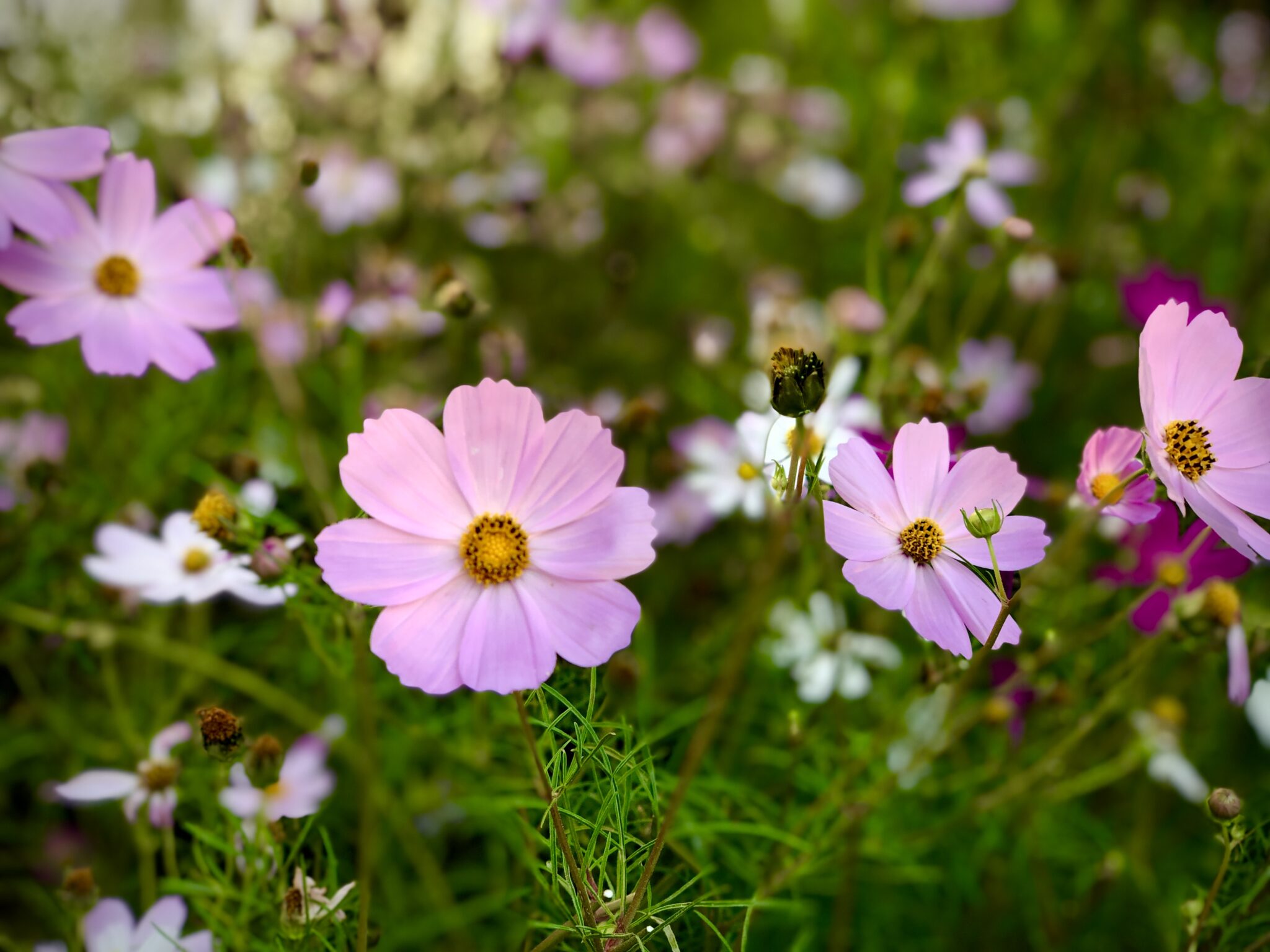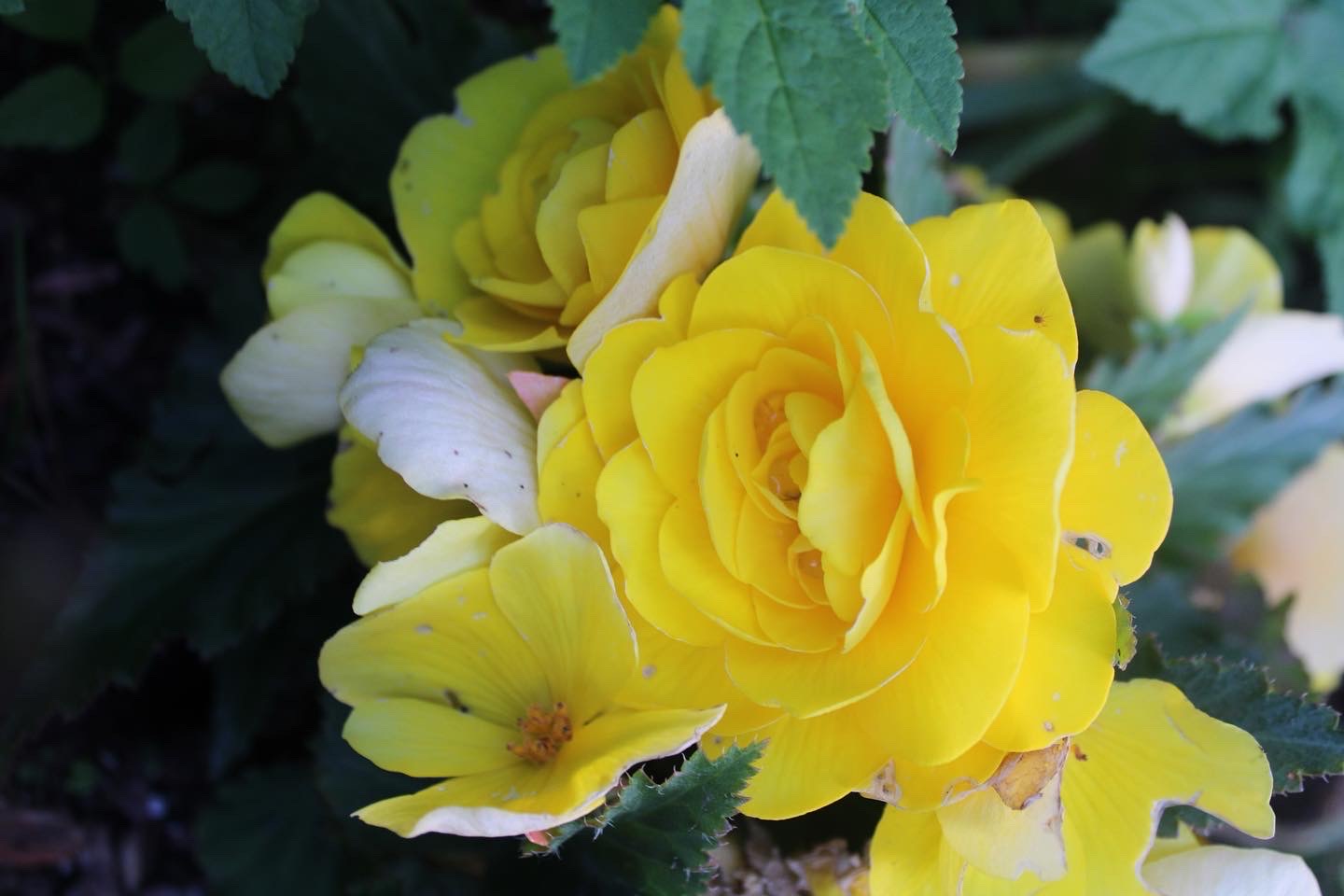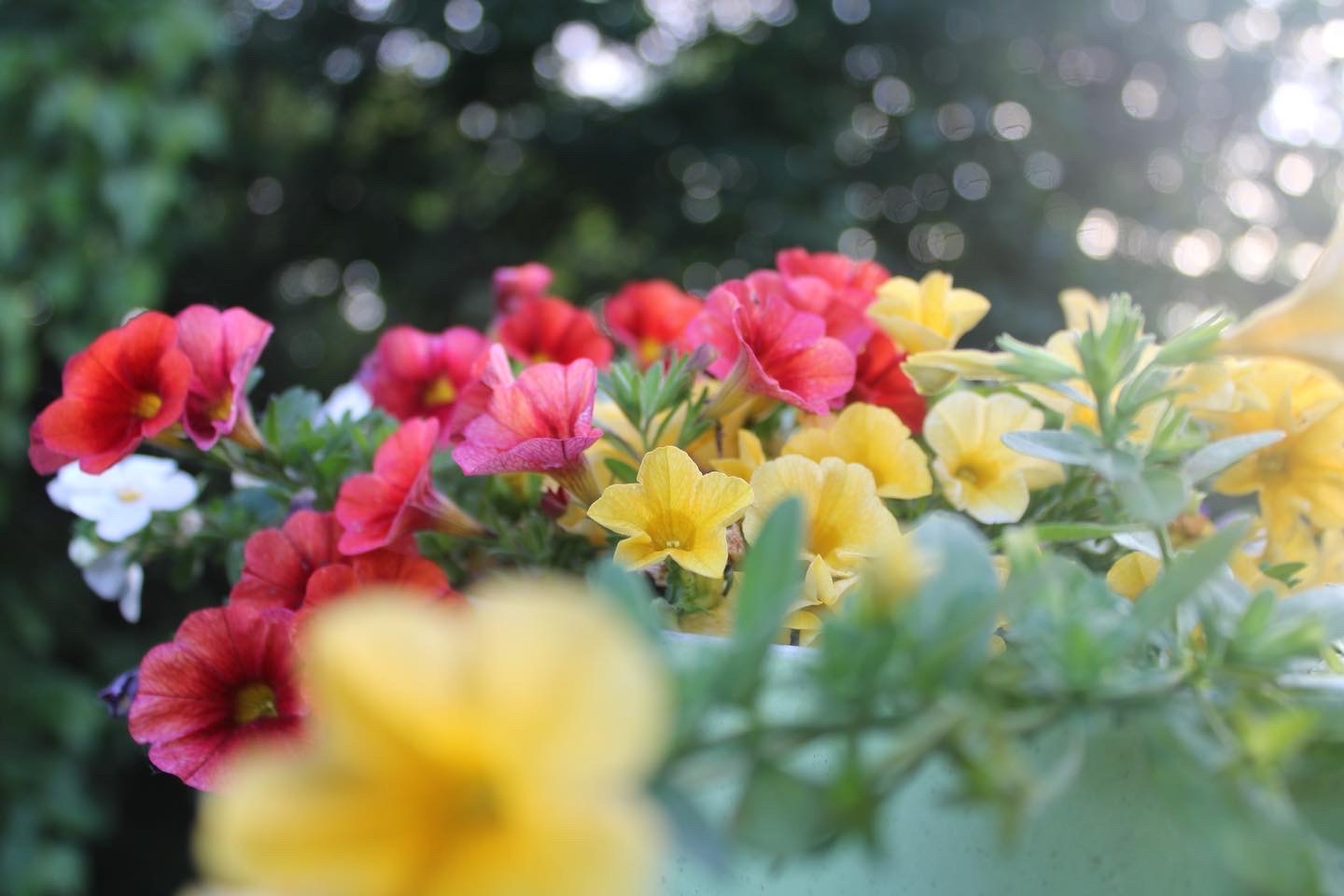Posts Tagged ‘therapist’
Craig – My Story
Craig – My Story
Craig’s story is one of resilience and triumph. In the span of just 18 months, he lost his marriage, his mom, two dogs, a cat, his job, and his house. But rather than give up, he picked himself up and started over. He went back to school to become a therapist, and now he’s helping others who are struggling to overcome adversity. Craig’s story is a reminder that no matter how bad things seem, there is always hope. With hard work and determination, you can overcome any challenge.
Craig – My Cumulative Grief
Craig – My Cumulative Grief
Craig shares his story of experiencing a series of significant losses over the course of two years. He talks about the shock, grief, and uncertainty he felt during this time, and how he coped with the accumulation of loss.Craig’s story is a reminder that grief is a normal and natural response to loss, but it can be overwhelming when it comes in waves. If you are experiencing grief, it is important to reach out for support from friends, family, or a therapist. There is no right or wrong way to grieve, and everyone experiences it differently. The important thing is to be patient with yourself and to allow yourself to feel your emotions.
A Million Other Things: Grieving a Drug Poisoning Death
By Jessica Milette, MSW, RSW
A parent sits across from me, anxiously wringing their hands. They will be returning to work after the sudden death of their child. “What if they ask? Do I tell them that they died of an overdose?” Terror flashes across their face. “What if they judge me? My child? What if they think I’m a terrible parent?” We take a moment to reflect on their child and I ask them to tell me about them. They pause, but then I notice their hands aren’t as tense as they cross them over their shoulders. “They were so thoughtful and gave the best hugs. Their smile would light up any room.”
Sister, father, son, niece, best friend – some of these words might be how you would describe your loved one who has died of an overdose or drug poisoning. People Who Use Drugs (PWUD) are not defined by their substance use – they are a million other things to those who love and miss them dearly. Drug poisoning and overdose deaths are stigmatized in our society. The focus is on how the person died, not who they are. Society still holds onto old notions and beliefs about drugs which come with a value judgment about people who use drugs, which further contributes to stigma. Not everyone who uses drugs is an addict and not all drug use is inherently problematic. People who use drugs deserve dignity and respect when we are remembering and honouring those who have died by overdose or drug poisoning.
More stigma means less support for people using drugs and those that support them. Much work has been done and continues to be done to dispel myths and stigma about addiction, drug use, and those who use drugs. Addiction is an illness: something that someone lives with, not something that defines them. These same values and judgments society has about drug use aren’t attached to folks who die of other illnesses. Society tends to view drug use and those who use them as a black and white issue. However, those who love someone who uses drugs weave a rich, colourful tapestry made of stories, reminders, and feelings about their loved one.
In my years as a grief therapist, those left behind want to share a special moment or memory about their loved one with a trusted other. When one is grieving a drug-poisoning death, this trust and sacredness without judgment offers the freedom to sit in the entirety of their grief—the grief they felt when their loved one was alive and when they died. Taking the time to use a loved one’s name in conversation, and asking the griever to share something about their loved one is a powerful tool for us on our grief journey. By initiating these types of conversations, we let the griever know that if they wish to, they can talk about their loved one. Sharing our stories are some of the most powerful ways one finds connection and healing through grief. It helps us feel less alone in our grief by sharing about what makes our person special. Those we love and grieve aren’t just a person who uses drugs – they are so much more. May each of us continue to share stories about our loved ones and the many facets their lives hold.
*DISCLAIMER* The scenario described in the article is a general reflection upon themes the author has witnessed through their grief counselling work and does not represent a specific individual in order to protect the confidentiality of service users.
What Does Grief Support Look Like?
Post by Maureen Pollard, MSW, RSW
When we experience significant, on-going symptoms of grief that interfere with our adjustment to the reality of our loss, it can be time to seek professional help. It can be difficult to know where to find help and what grief support options are available.
Begin by asking for a referral. Maybe your family or friends have received good grief support they would recommend. Your doctor can typically provide a referral or you can conduct an internet search. When you find a grief support program on the internet, take time to examine the website thoroughly then connect by email or telephone to ask any questions you have before deciding which support might be the best fit for you.
Types of Grief Support:
Individual counselling with a therapist. A professional who has experience and knowledge in the area of dying, death and grief will listen to your story without judgment and then co-create a plan for healing that feels comfortable for you. The time you spend in counselling should be dedicated to your grief, with a focus on helping you find your way through your experience using information, insights and skill of the therapist to help you through the complex feelings and tasks.
Group therapy. This type of support may be led by a professional, or may be offered by peers who have experienced a similar loss. Groups can offer a rich support experience that lets you know you are not alone, and offers you the opportunity to learn from several others living with a similar loss. The time you spend in group will be shared and with a focus on topics relevant to the group’s purpose rather than any one group member’s situation. It’s important to learn about how the group works and what types of activities you’ll experience as you decide whether to try attending a group. If the group is run by peers, ask what type of training and support they received to ensure they’re delivering quality care.
On-line forums. There are many groups and forums focused on grief education and support on the internet. These are easy to access and allow you to participate at your own comfort level, either by simply reading posts or actively sharing your own situation, seeking support and offering support to others. A forum can create a sense of community among its membership, providing a great source of information and support from others who have a similar experience of loss who share what they have learned. In public internet forums there is always a risk of interference by people who post to cause trouble, but private, members-only, moderated forums can significantly reduce this risk.
Remember, whatever type of grief support you try beyond family and friends, don’t be afraid to quit if the style or structure of the support doesn’t feel comfortable or helpful. If you’re still experiencing the symptoms that led to your decision to seek additional help, please don’t stop trying to find the kind of support that can meet your needs. There are many different types of counsellors, groups and forums and it can take some time to find the one that’s right for you. Your healing is worth it!
Tending to My Garden of Grief
By Taylor Bourassa, RP & Professional Art Therapist.
Losing a loved one –whether through death or the end of a relationship, brings up complex emotions, some of which are hard to process. The first major loss I can remember experiencing was when I was quite young and my grandfather died. I barely knew the man, but to this day we still share stories of his impact on my father, his son, my mother, his daughter-in-law, and us, his grandchildren. The memories bubble up slowly and play in my mind like a distorted movie playing on the television screen. It is part of my life I can’t quite recollect without the input of others. Then in my middle teen years I attended a funeral for my grandmother’s sister, and I remember watching the grief flood my grandmother’s face as she dissolved into tears and I wondered: how can I, or any one else hold this grief in the “right” way? How can any of us help ease that pain?
When I was 16 or 17, my cat, who I still recognize as my earliest best friend, developed cancer and needed to be put down. This was the hardest thing I had had to face at that point in my young life. I was faced with what seemed to be inconsolable grief. That same thought bubbled up: how can anyone ease this unbearable pain?
A few years ago I was faced again with the reality of our mortality on this planet Earth when my dog, Roxy, had to be put down due to ailing health and decline. That same question flitted through my mind. Now, at 29, and having faced multiple losses and deaths I finally have some semblance of an answer to that question. It isn’t straightforward, and it probably isn’t universal. But it feels appropriate for me: remember, honour and celebrate. The pain of these losses will more than likely be with me my entire life, until the day I die and pass the pain onto my loved ones left behind. So long as I remember the lives of those I have lost, honour their presence and impact on me and celebrate their spirit, they will continue to live with me and the pain will feel bearable. It will no longer stop me in my tracks. Instead, it will encourage me and propel me forward through the transmutation of that grief into something different, something more nuanced and fluid. I’d like to share a practice for processing grief which I have found to be especially helpful.
Reflect on person or pet that has passed on and write a letter to them. Use recycled, bio-degradable paper to write this letter, so that when you get to the end of this invitation and you plant your letter it will be taken back into the earth and soil.
Imagine the things you appreciate about this person, the memories you two share, the impact they have had on you, and anything you feel has been left unsaid or unexpressed while they were still living. Before you close and seal the letter, read it back to yourself and sit with whatever memories, feelings and thoughts come up. Allow the energy of this person to show up and sit with that felt sense of who they were. When you are ready, fill the envelope with your letter and the seeds of your choice: flowers, fruits or vegetables. Use the seeds which you feel best honours the person. Find a location that is both accessible to you and reflects a space of honouring and celebration. This may be a favourite shared space between the two of you, or a new spot you would like to crop out as a way to honour and remember them. Once you have found your spot, take your letter and your seeds and bury them in this spot. Eventually, the seeds you have planted will sprout and grow, changing the spot into a new gravesite garden. Soon, the biodegradable letter will also be gone, subsumed back into the womb of the earth and soil, feeding the land for the growth and propagation of the flowers you have planted. Maybe these flowers will remain only in the space you created, or, what is more likely, they will be spread on the wind and the legs of bees, and the beaks of birds until the grass beneath is forever changed, peppered with new and continuing growth.
What a beautiful way to honour the deceased: recognizing their continued impact on you and the world around you as they and their memory connects with and returns to the earth. I find this to be a helpful way to process my own grief because it allows me an embodied, tangible and somatic way of addressing, honouring and processing the grief held inside my body. The grief will always be there in some capacity, and now there is a space which I can visit and reflect. The heaviness and weight of the grief is no longer mine alone – the whole earth helps me to carry it. Grief is such a unique, yet universal experience. My own experiencing of grief is all I know for certain, and so I keep searching for answers. I hope that as you navigate your own grief, you can alleviate some of the weight by sharing the load with the natural world around you.
Lynda – “The importance of getting professional help”
Lynda – “The importance of getting professional help”
Lynda discusses the many ways professionals can help.
Kara – “Just give it time”
Kara – “Just give it time”
Kara discusses time and how grief changes. Kara continues to grieve the death of her partner.



